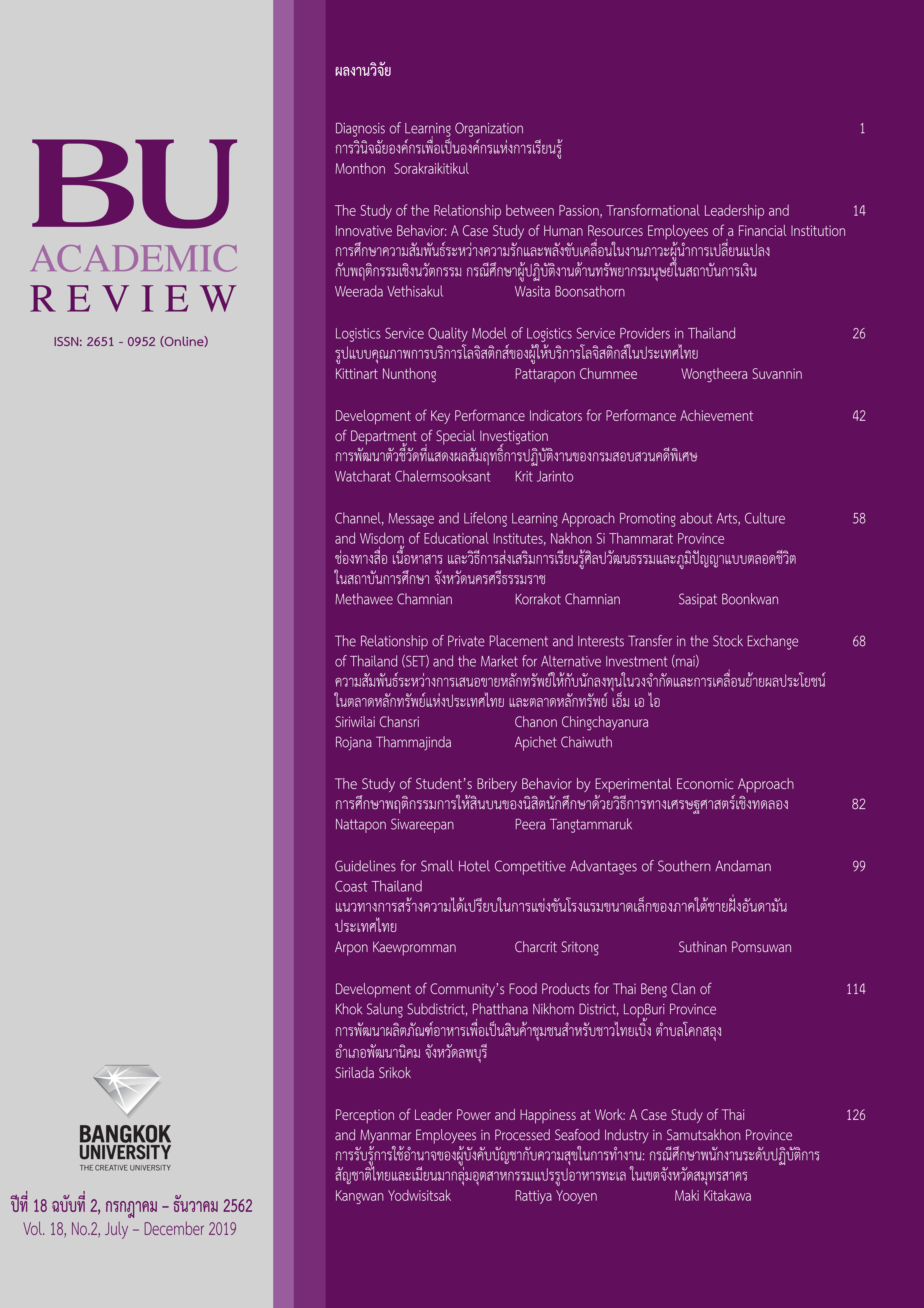The Study of Student’s Bribery Behavior by Experimental Economic Approach
Main Article Content
Abstract
The objectives of this research are to study university students’ bribery behavior, factors determining the bribery behavior, as well as the effect of social norm on the bribery behavior. A simulated scenario based on experimental economic approach is also applied and used to reflex students’ decision to bribe. The format of the experiment is a simulation of the competition for the prize. However, during the competition, a situation with an obstacle is presented to test the bribery decision among 96 participants who were randomly divided into 3 groups, and each of which has 32 participants with different simulated social norms. Then, statistical techniques and econometric binary choices model are used to analyze the data.
This research found that 58.33 percent of the sample decided to bribe, while the willingness to surpass an obstacle, and success needs are two main reasons explaining their decision. Regarding a maximum likelihood estimation in a binary choices model, income, year of study, grade, religious austerity, and negative social norms are significant factors affecting students’ bribery decision. Additionally, we found that the propensity to bribe will increase in the situation where bribery is usually done as a social norm.
Article Details
The manuscript submitted for publication must be the original version, submitted only to this particular journal with no prior acceptance for publication elsewhere in other academic journals. The manuscript must also not violate the copyright issue by means of plagiarism.


